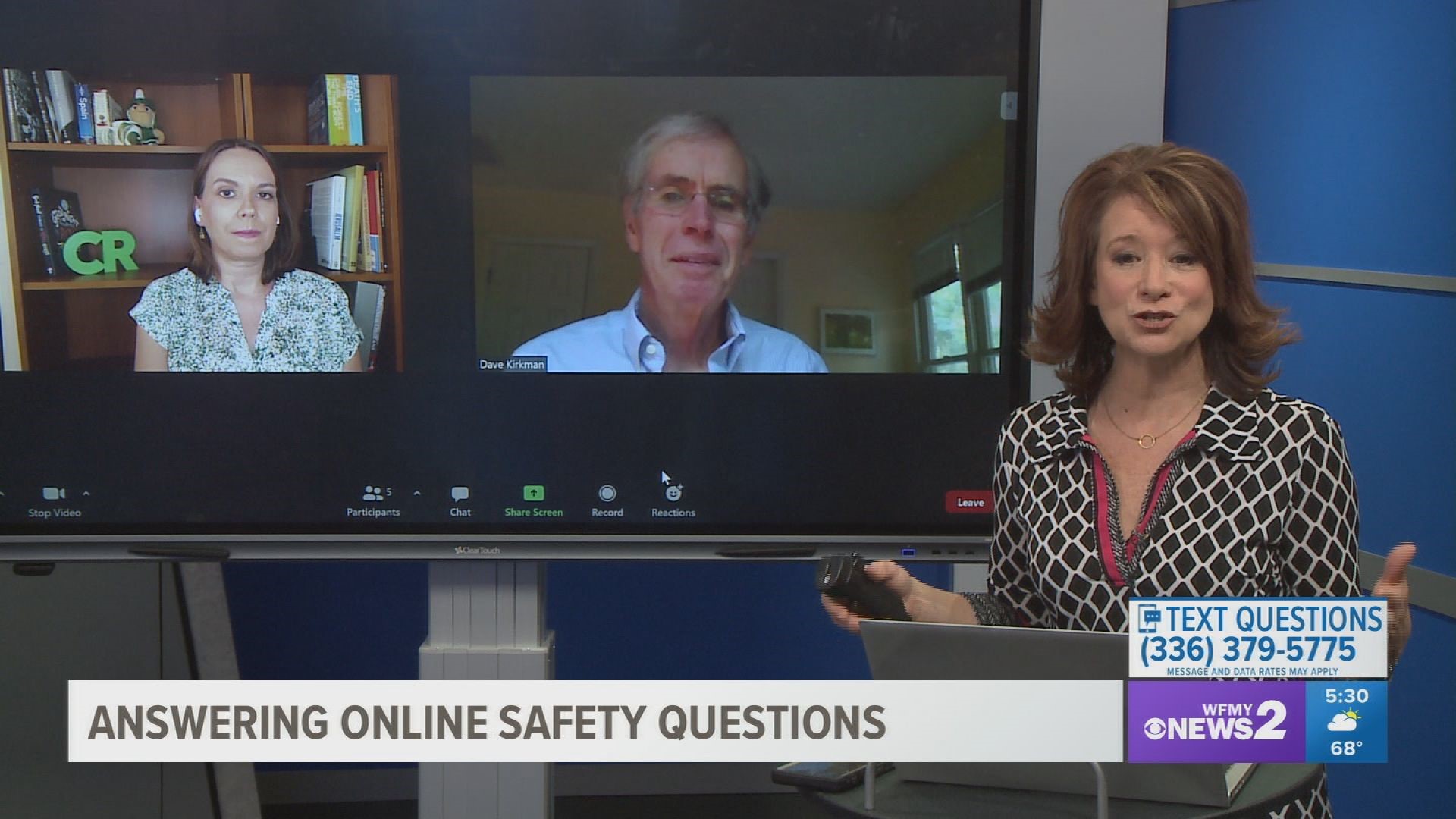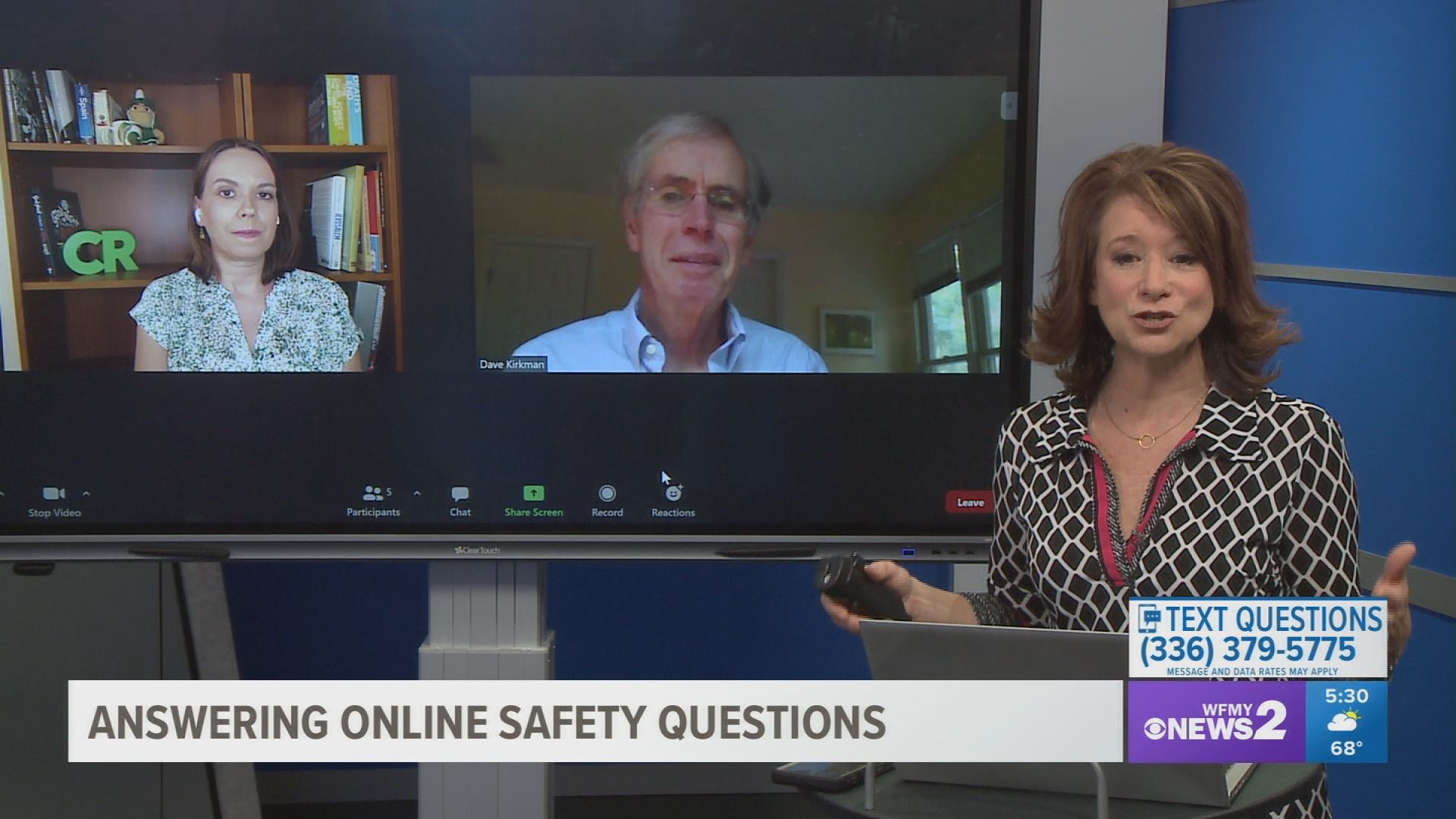GREENSBORO, N.C. — Despite, what you might think... 123456 is not a password. I mean it is, but it’s not a good one and it’s easily hacked.
Bree Fowler, Consumer Reports Tech Reporter, and David Kirkman, AARP, Fraud Prevention help 2 Wants to Know viewers protect themselves when they're online.
Who is out there stealing or figuring out our passwords, how do they do it, and what do they do with the information once they're successful?
They range from lone wolf ID thieves to organized criminal groups. All are very computer savvy. They break into a company's computer systems to steal passwords, they hack into our personal computers to steal them, or they figure them out using information on us that is online. They either sell the information on the dark web or they start stealing from our accounts immediately.
How do we protect ourselves from password thieves?
David Kirkman suggests using complex passwords; use password manager programs; employ a good security program for your computers, etc; never click on a link in an unexpected text or email; select difficult challenge questions; be careful what you post about yourself on social media; avoid public WiFi; use two-factor authentication wherever possible.
What was the worst password theft situation you ever came across?
Tech support scams against seniors. Very devastating, both financially and psychologically.
How do I come up with a good, strong password?
A password should be composed of a long string of characters. Think of at least a dozen. Try stringing them together using an easy-to-remember phrase: Thequickbrownfoxjumpsoverthelazydog. (Though it's better to choose a phrase only you know.)The more characters, the harder the password will be to break.


